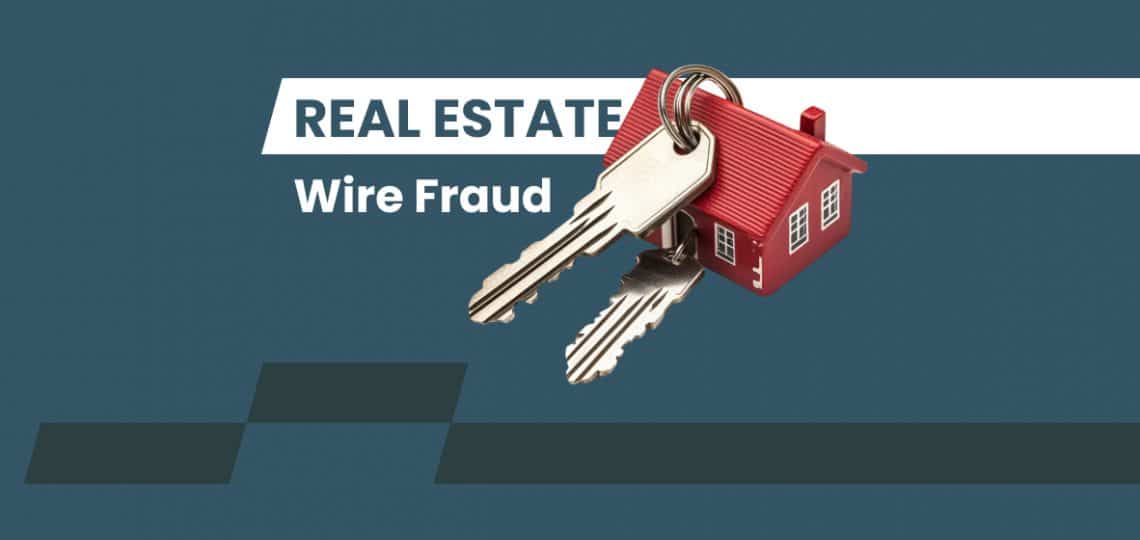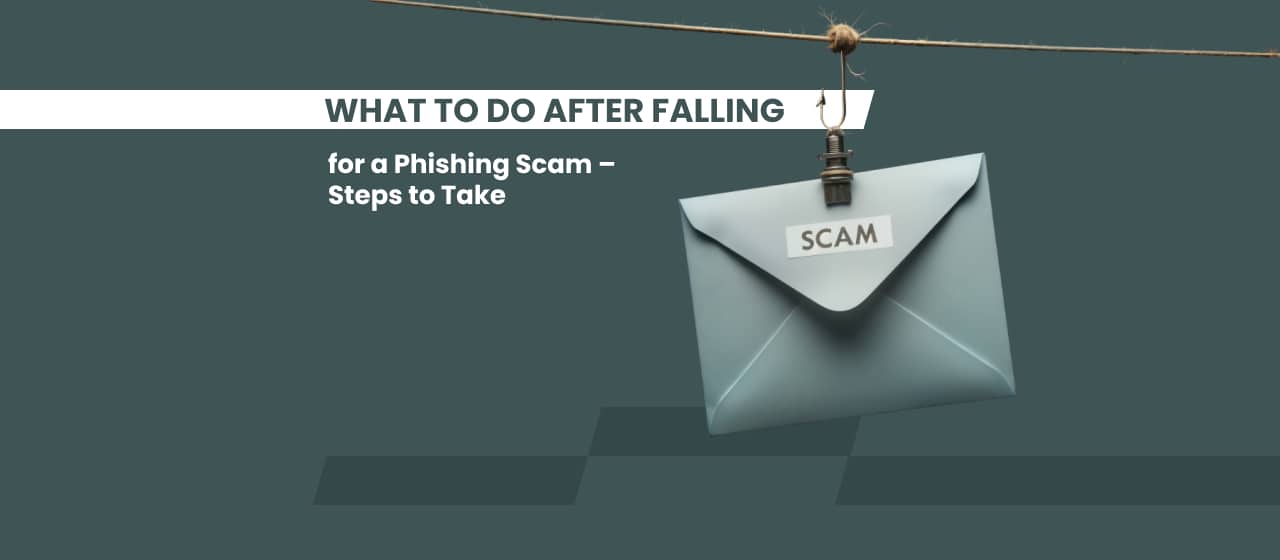For many aspiring homeowners, purchasing real estate seems like an uphill battle. Home prices and mortgage rates have reached new highs, pricing out millions of potential first-time home buyers. The suffering housing market provides enough issues on its own. Hopeful home buyers often have to save up for years in addition to seeking the assistance of loans. But after all this, what if one email could place you back at square one? For victims of real estate wire fraud, this is not a hypothetical question, but rather their real-world circumstances. Keep reading to learn more about this devastating crime and ways you can avoid the pitfalls.
What is Real Estate Wire Fraud?
As the name suggests, real estate wire fraud schemes target would-be home buyers with fraudulent attacks targeting their transaction. Scammers take advantage of the high emotions of buying a home and strike in the waning moments of the purchase.
They will typically swoop in right before the transaction is finalized. Then, they will pose as the realtor or your financial institution and redirect your money to a new account. These attacks are especially effective on first-time home buyers, who are three times as likely to fall victim. Their eagerness and naivety are the perfect combination for real estate wire fraud.
Why Are Real Estate Transactions Targeted?
The most glaring reason that wire fraud is committed in the real estate sector is the size of the transactions. Buying a house is a massive investment, and managing to intercept one transaction could net the criminal tens of thousands of dollars.
Furthermore, real estate transactions now typically happen partially or completely online. This makes it increasingly easy for cybercriminals to deploy their attacks. With access to the branding elements of your financial institution or real estate agency, scammers can craft convincing phishing emails that direct you to send funds to fraudulent accounts.
In the excitement of finalizing a real estate purchase, buyers may not analyze the email header of an update message. A slight typo, such as an extra letter in the name, or an uppercase “I”, or “1” in place of a lower case “L”. These subtle changes may not stick out enough to cause alarm. Furthermore, some scammers commit business email compromise (BEC), making fraudulent messages indistinguishable.
How to Avoid Wire Fraud
What you’ve read so far has likely made you hesitant to look into purchasing real estate. However, it is possible to avoid the added difficulties of real estate wire fraud and safely purchase a home. Our experts suggest you take the following precautions:
- Confirm contact information. You will receive the contact information of your lender and realtor early on. Be sure to save this information to confirm that any communications are coming from a verified source.
- Clear up the closing process. Go over the closing process early on, so you have an understanding of what to expect. This way, you’ll be able to pick up on any irregularities that may present themselves.
- Call before and after the wire. Before you send any money, call your lender and realtor to confirm that everything is good to go. Afterward, it is also a good idea to reach out again and confirm the payment has been received.
- Consider a passcode. You may want to establish some sort of code with your contacts. This will allow you to confirm the identity of who you are speaking with before discussing details of a financial transaction.
Red Flags of Real Estate Wire Fraud
There are some warning signs that commonly pop up in real estate wire fraud schemes. While some of these are relatively subtle, picking up on them could save your savings. With such an important procurement on the horizon, you need to be extremely cautious. Take warning of any of the following factors:
- Last-minute changes. As we said earlier, real estate wire fraudsters typically swoop in as the deal is about to be finalized. If you receive a message requesting a redirection of the transaction, contact your realtor through a verified method.
- Wire requests to foreign countries. If you receive a message telling you to deposit your downpayment to an account located outside your country, this is a major red flag. Most of these transactions will go to accounts within your general vicinity, and title money funds should be sent to a lawyer trust account.
- Unusual text. At this point in the process, you’ve likely been in consistent contact with your bank and realtor. You’ll probably have some familiarity with the way they communicate. If you receive a message that is structured unusually or contains awkward or grammatically incorrect text, you should be on alert.
Real-World Case: Two Indiana Men Sentenced in Real Estate Wire Fraud Scheme
In late August 2025, two men from Indiana were sentenced to 10-and-a-half years in prison and a combined restitution of $60,000 for carrying out a real estate wire fraud scheme. The two men, Titus Akindamini and Chidinma Akinyele, targeted both a homebuyer and escrow agent.
The men were indicted by a grand jury in 2024, but the scheme began four years earlier in December 2020. The homebuyer, listed as “Victim 1,” was looking to purchase property in Marfa, Indiana through the services of the escrow agent, or “Victim 2.”
At some point, the scammers were able to compromise the business email of an employee or Victim 2. This gave them access to a legitimate form of contact to target Victim 1, as well as records pertaining to the potential transaction.
They then sent an email to Victim 1 directing them to transfer $60,000 to a Fifth Third Bank account in Indianapolis. Victim 2 became privy to the fraudulent email a few weeks later after not receiving payment and reviewing email discourse. However, the scammers had been withdrawing and relocating the transferred money in this time.
This case serves as a stark reminder of how intricate these schemes can get. It also reminds us of the importance of security measures taken by service providers. Not only do these scams harm the consumer, but they can also be catastrophic for businesses.
Don’t Fall Victim
Unfortunately, real estate wire fraud is an issue that only becomes more prevalent over time. The Internet Crime Complaint Center (IC3) received over 9,000 reports of real estate fraud in 2024, resulting in losses of over $173 million. However, some estimates predict that this number may be closer to $500 million.
What makes matters worse is that a large portion of home buyers are uninformed on the risks of wire fraud in real estate purchases. According to CertifID, 52% of consumers are either “not aware” or are only “somewhat aware” of these potential pitfalls. This is evident in the fact that roughly one in every 20 consumers falls victim to these schemes.
With statistics like these, it’s paramount that all potential purchasers know about real estate wire fraud and how to respond. Thankfully, our experts have compiled a list of suggested actions should you ever find yourself in this position.
- Report immediately. The quicker you report the instance, the higher the chances of law enforcement being able to take action against the perpetrator.
- Request a wire recall. You should also notify your financial institution as quickly as possible. Reporting within 24 hours yields the best results of reversing the wire and recovering the funds.
- Consider cybersecurity professionals. These experts can analyze metadata within digital communications to track down the criminals behind the scheme. This can help relocate funds and bring the perpetrator to justice.
And if you fall victim to real estate wire fraud, remember the team at Cyber Investigation Inc, is here for you. You can contact us 24/7 to connect with one of our specialists and work to reclaim your money.







